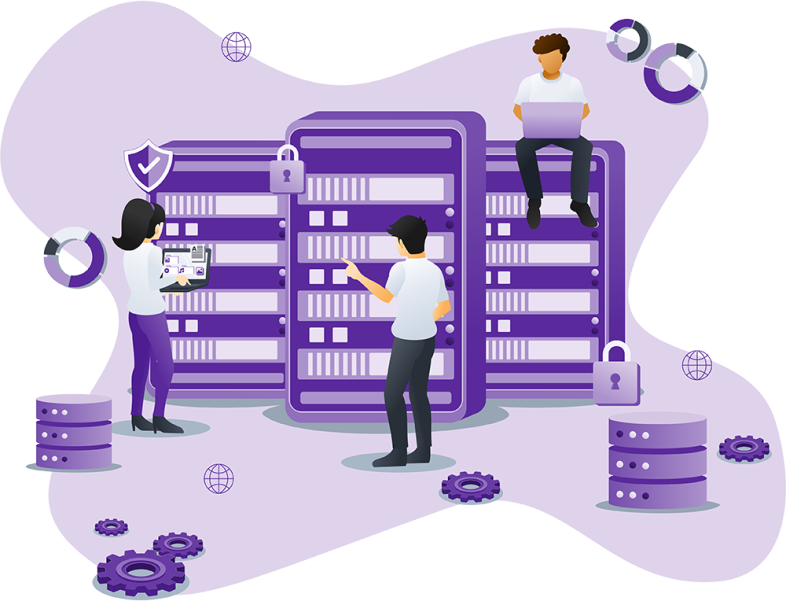DEVELOPMENT STAFFING

Hire Developers That Don’t Disappoint
With a diverse candidate pool of over 25,000 highly capable IT experts, WME can quickly and efficiently identify the right development candidates for you.
- A single point of contact
- Cohesive strategy
- Focus on safety & security
- Consistent workforce management
Previously, the .NET framework was the core of Microsoft’s development stack. While it’s still in use, there are many more platforms that organizations rely on today – most of them operating in the cloud. No matter what your development stack needs are, WME can help you staff up with the right quality of talent. The following are some of the job skills we are currently sourcing for WME clients.
Microsoft Stack Developers
Organizations today are looking for developers with expertise in Azure Kubernetes Service (AKS). They must be able to manage Docker orchestration & containerization in an environment that uses secured Kubernetes for the deployment, scaling, and management of Docker containers.
Their role often includes implementing Infrastructure as a Service (IAAS), Platform as a Service (PAAS), and Software as a Service (SaaS) cloud solutions often on infrastructures that have OpenStack, Kubernetes, Docker, or Red Hat OpenShift platforms in place.


Microsoft Power Platform Developers
Microsoft Power Platform (Power BI, Power Apps, Power Automate) developers have strong business intelligence (BI) and modeling skill. They are required for designing, developing, coding, testing, debugging, deploying, documenting, and integrating enterprise BI and analytic applications. They work with business and technical stakeholders to identify and specify business requirements and require knowledge of a range of Microsoft tools including Office 365, SQL Server, MS Teams, Power Query, Power Pivot, and open-source tools like Python.
Software Engineers
Software engineers are needed to fill a variety of roles developing new web features, extending mobile applications, building out new enterprise infrastructure and workflow, and more. Software engineers collaborate with architects and other team members to plan and implement architecture designs, develop concise and tested code, and execute according to proscribed Waterfall or Agile development models. Candidates require a solid foundation in computer science as well as experience with development tools including JavaScript, PHP, Python, Docker, AWS, SQL, Git, WordPress, and others.


Database Programmers/Analysts
Database programmers/analysts perform data analysis involving a diverse range of skills and tasks. They conceptualize, model, and present data, manage system implementation initiatives and advise on data usage, taxonomy, migration, profiling, quality improvement, and transformation. Candidates for this position should be able to analyze, design, and create SQL code scripts to extract, transform, and load (ETL) data into Oracle or SQL Data databases. They also document metadata and database entity definitions, perform data mapping analysis between data sources and targets, and construct and test SQL Server Integration Services (SSIS) ETL packages. Such positions also require in-depth knowledge of business operations, systems requirements, and IT processes and technologies. More importantly, the candidates should have the ability to analyze data to identify and interpret trends or patterns in structured and unstructured complex data sets.
Senior Application Developer
Senior software developers oversee the design, testing, and implementation of software programs, websites, and applications. They are responsible for feasibility studies, managing project timelines and tasks, writing advanced programming code, managing documentation, and overseeing team productivity. They ensure that projects are completed on time and meet company specifications. Besides excellent computer science credentials and DevOps experience, they should have expertise in a variety of application and programming technologies including C#, ASP.NET, Windows Communication Foundation (WCF), Internet Information Services (IIS), Microsoft SQL Server, and more.
